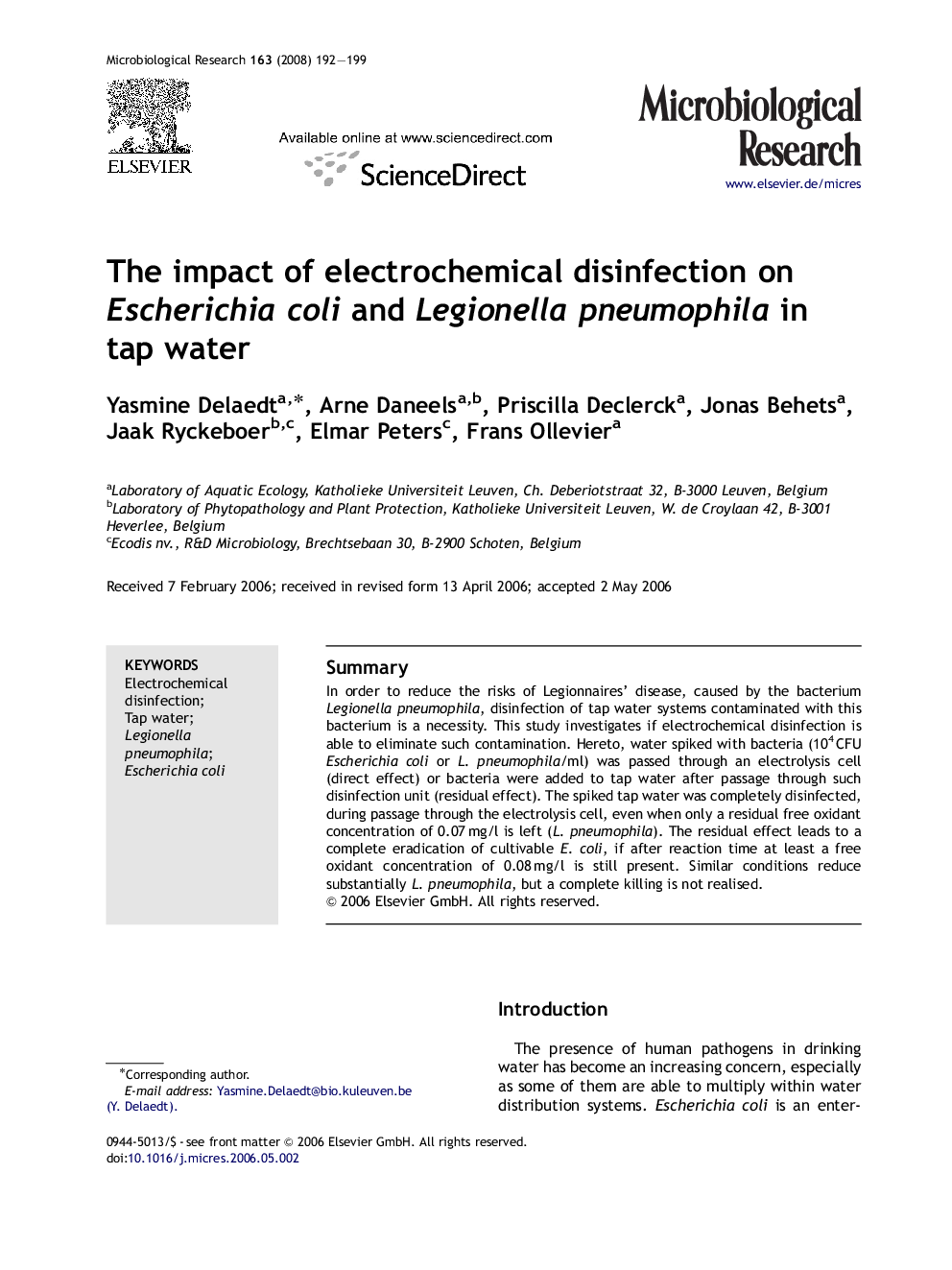| Article ID | Journal | Published Year | Pages | File Type |
|---|---|---|---|---|
| 2092552 | Microbiological Research | 2008 | 8 Pages |
SummaryIn order to reduce the risks of Legionnaires’ disease, caused by the bacterium Legionella pneumophila, disinfection of tap water systems contaminated with this bacterium is a necessity. This study investigates if electrochemical disinfection is able to eliminate such contamination. Hereto, water spiked with bacteria (104 CFU Escherichia coli or L. pneumophila/ml) was passed through an electrolysis cell (direct effect) or bacteria were added to tap water after passage through such disinfection unit (residual effect). The spiked tap water was completely disinfected, during passage through the electrolysis cell, even when only a residual free oxidant concentration of 0.07 mg/l is left (L. pneumophila). The residual effect leads to a complete eradication of cultivable E. coli, if after reaction time at least a free oxidant concentration of 0.08 mg/l is still present. Similar conditions reduce substantially L. pneumophila, but a complete killing is not realised.
